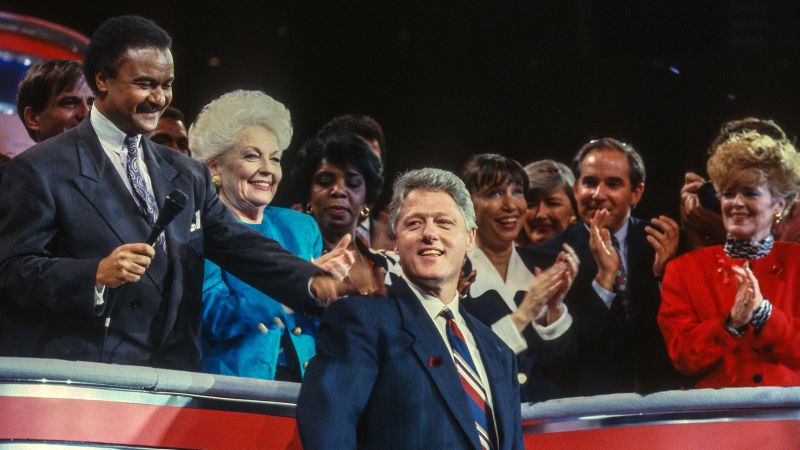The shock of losing to President Donald Trump a second time has inspired the biggest bout of Democratic introspection since the 1980s.
Since Trump’s reelection, new groups and initiatives to reconsider the Democratic message and agenda have proliferated. Though these efforts have emerged across the party’s ideological spectrum, many of them argue that Democrats must move toward the center, particularly on cultural issues, to recapture working-class voters who have shifted toward the GOP since Trump’s emergence as its national leader.
Those calls echo the warnings during the 1980s from the party centrists who created a group called the Democratic Leadership Council. The DLC spent the late 1980s banging heads with more liberal constituencies before ultimately capturing control of the party’s direction behind Bill Clinton’s election as president in 1992.
“Similar to that period, we’ve been confronted with the fact that we are not a majority and 2024 drove that home,” said Adam Jentleson, a former Senate Democratic aide who recently launched the Searchlight Institute to incubate new policy and political strategies for the party. “What’s happened in the last 10 years is there’s [emerged] a group for every issue, and on each issue … you have this wall of sound screaming at Democrats to move left. Not only does it push them to take positions outside the mainstream, it doesn’t provide any space to think outside the box.”
Just as in the 1980s, these calls for the party to moderate are facing resistance from more progressive elements, who say it misdiagnoses the reasons for Trump’s success. “I just don’t feel that cultural moderation is the simple fix,” said Jenifer Fernandez Ancona, vice president and chief strategy officer of Way to Win, a liberal group that focuses on supporting candidates of color. “It’s been a rush to this theory of ‘move to the center’ without having a real debate in the party.”
Today’s internal Democratic debate sounds as heated as its predecessor a generation ago, but it may be less intractable. Beneath the sharp words, all Democratic factions share some common beliefs about how badly the party’s image has deteriorated in the Trump years — and how urgently it needs to reverse that trend.
President Jimmy Carter concedes the 1980 presidential election to Ronald Reagan. Bettmann Archive/Getty Images
The doldrums of the 1980s
Like today, the 1980s period of Democratic soul-searching was triggered by voter backlash against a disappointing presidenc
Continue Reading on CNN
This preview shows approximately 15% of the article. Read the full story on the publisher's website to support quality journalism.
